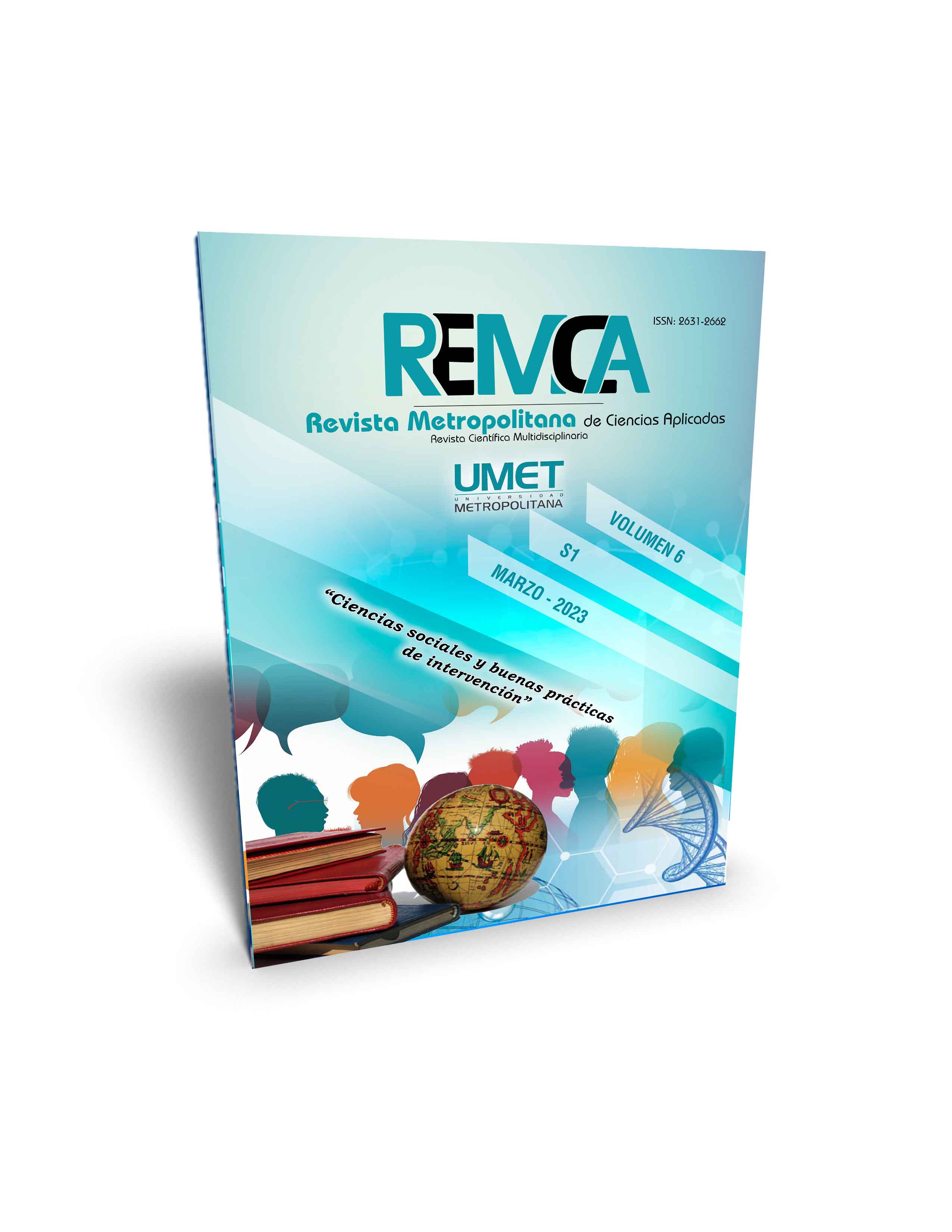The impact of artificial intelligence on academic work and research papers
DOI:
https://doi.org/10.62452/8nww1k83Keywords:
Artificial Intelligence, ChatGPT, academic papers, plagiarismAbstract
This research seeks to present the production of academic and scientific papers using artificial intelligence for Chat GPT language modeling in different areas of higher education. To obtain the results, the quantitative approach was followed, the type of research is descriptive with a non-experimental design at the field level. The size of the population were the teachers of various careers at the Machala Metropolitan University. For the sample, a probabilistic sampling with simple random selection was used, calculating the sample size with a margin of error of 5% and a confidence level of 95%. The main results in the application of the instrument are, among others, the fact that none of the teachers could detect that the document they reviewed was created by artificial intelligence and they gave it an average score of 8.88/10 and that the platform anti plagiarism Compilatio also generated an average of 1% similarity, demonstrating that academic and research papers are currently indistinguishable from human-made work, neither in human review nor on anti-plagiarism platforms. plagiarism.
Downloads
References
Abou-Foul, M., Ruiz-Alba, J. L., & López-Tenorio, P. J. (2023). The impact of artificial intelligence capabilities on servitization: The moderating role of absorptive capacity-A dynamic capabilities perspective. Journal of Business Research, 157.
Adams, C., Pente, P., Lemermeyer, G., & Rockwell, G. (2023). Ethical principles for artificial intelligence in K-12 education. Computers and Education: Artificial Intelligence, 4.
Barrios Tao, H., Díaz Pérez, V., Guerra, Y., Barrios Tao, H., Díaz Pérez, V., & Guerra, Y. (2020). Subjetividades e inteligencia artificial: desafíos para ‘lo humano’. Veritas, 47(47), 81–107.
BBC News Mundo. (2015). Google pide perdón por confundir a una pareja negra con gorilas. BBC News Mundo. https://www.bbc.com/mundo/noticias/2015/07/150702_tecnologia_google_perdon_confundir_afroamericanos_gorilas_lv
Chiu, T. K. F., Xia, Q., Zhou, X., Chai, C. S., & Cheng, M. (2023). Systematic literature review on opportunities, challenges, and future research recommendations of artificial intelligence in education. Computers and Education: Artificial Intelligence, 4.
Corvalán, J. G. (2018). Inteligencia artificial: retos, desafíos y oportunidades - Prometea: la primera inteligencia artificial de Latinoamérica al servicio de la Justicia. Revista de Investigações Constitucionais, 5(1), 295–316.
Gendron, Y., Andrew, J., & Cooper, C. (2022). The perils of artificial intelligence in academic publishing. Critical Perspectives on Accounting, 87.
González Valenzuela, C. (2023). Cómo detectar un texto escrito por la IA de ChatGPT y que no te la cuelen. https://computerhoy.com/tecnologia/escrito-texto-ia-chatgpt-puedes-detectarlo-1187636
González-Esteban, E., & Calvo, P. (2022). Ethically governing artificial intelligence in the field of scientific research and innovation. Heliyon, 8(2), e08946. https://doi.org/10.1016/J.HELIYON.2022.E08946
Górriz, J. M., Ramírez, J., Ortíz, A., Martínez-Murcia, F. J., Segovia, F., Suckling, J., Leming, M., Zhang, Y. D., Álvarez-Sánchez, J. R., Bologna, G., Bonomini, P., Casado, F. E., Charte, D., Charte, F., Contreras, R., Cuesta-Infante, A., Duro, R. J., Fernández-Caballero, A., Fernández-Jover, E., … Ferrández, J. M. (2020). Artificial intelligence within the interplay between natural and artificial computation: Advances in data science, trends and applications. Neurocomputing, 410, 237–270.
Hu, Y., & Min, H. (2023). The dark side of artificial intelligence in service: The “watching-eye” effect and privacy concerns. International Journal of Hospitality Management, 110.
O’Connor, S., & ChatGPT. (2023). Open artificial intelligence platforms in nursing education: Tools for academic progress or abuse? Nurse Education in Practice, 66.
Sanusi, I. T., Olaleye, S. A., Agbo, F. J., & Chiu, T. K. F. (2022). The role of learners’ competencies in artificial intelligence education. Computers and Education: Artificial Intelligence, 3.
Van Dis, E. A. M., Bollen, J., Zuidema, W., van Rooij, R., & Bockting, C. L. (2023). ChatGPT: five priorities for research. Nature 2023 614:7947, 614(7947), 224–226.
Wang, H., Li, J., Wu, H., Hovy, E., & Sun, Y. (2022). Pre-Trained Language Models and Their Applications. Engineering, 7.
Zhang, M., & Li, J. (2021). A commentary of GPT-3 in MIT Technology Review 2021. Fundamental Research, 1(6), 831
Downloads
Published
Issue
Section
License
Copyright (c) 2023 Fernando Juca-Maldonado (Autor/a)

This work is licensed under a Creative Commons Attribution-NonCommercial-ShareAlike 4.0 International License.
Authors who publish in Revista Metropolitana de Ciencias Aplicadas (REMCA), agree to the following terms:
1. Copyright
Authors retain unrestricted copyright to their work. Authors grant the journal the right of first publication. To this end, they assign the journal non-exclusive exploitation rights (reproduction, distribution, public communication, and transformation). Authors may enter into additional agreements for the non-exclusive distribution of the version of the work published in the journal, provided that acknowledgment of its initial publication in this journal is given.
© The authors.
2. License
The articles are published in the journal under the Creative Commons Attribution-NonCommercial-ShareAlike 4.0 International License (CC BY-NC-SA 4.0). The terms can be found at: https://creativecommons.org/licenses/by-nc-sa/4.0/deed.en
This license allows:
- Sharing: Copying and redistributing the material in any medium or format.
- Adapting: Remixing, transforming, and building upon the material.
Under the following terms:
- Attribution: You must give appropriate credit, provide a link to the license, and indicate if any changes were made. You may do this in any reasonable manner, but not in any way that suggests the licensor endorses or sponsors your use.
- NonCommercial: You may not use the material for commercial purposes.
- ShareAlike: If you remix, transform, or build upon the material, you must distribute your creation under the same license as the original work.
There are no additional restrictions. You may not apply legal terms or technological measures that legally restrict others from doing anything the license permits.




